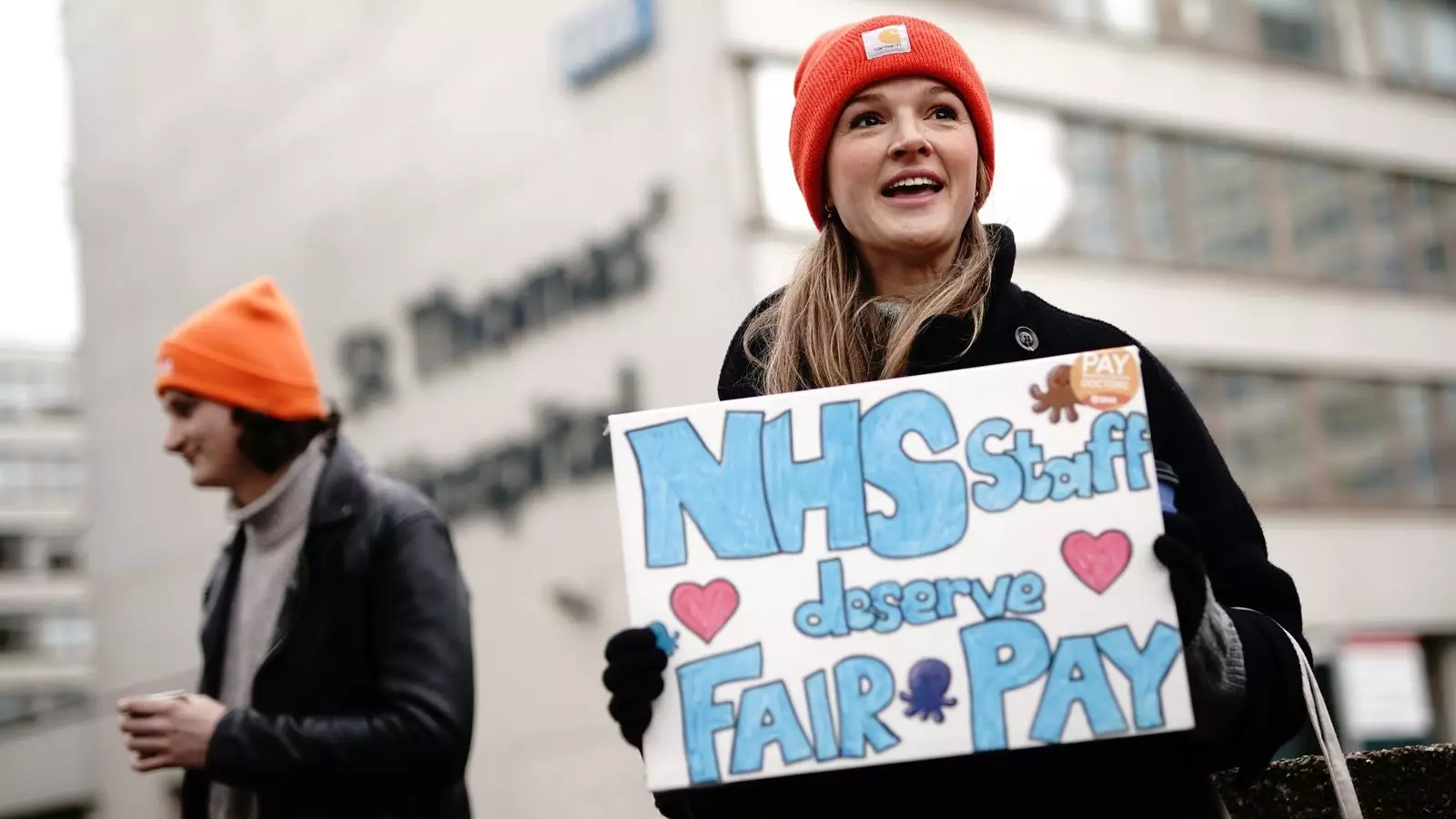The government in England has recently made an offer to junior doctors, proposing a 22.3% pay rise in order to put an end to the ongoing strike actions. The British Medical Association’s junior doctors committee has agreed to present the offer to its members for consideration. This proposal, if accepted, will bring an end to months of walkouts and disputes over pay within the healthcare sector.
The pay rise offer is set to be implemented over a two-year period, as reported by The Times. It includes a pay increase ranging from 8.1% to 10.3%, along with a backdated 4.05% increment for 2023-24. Additionally, there is a planned 6% pay rise for 2024-2025, which will be complemented by a £1,000 payment. This payment is equivalent to a pay rise between 7% and 9%.
Response and Implications
Should the junior doctors accept this offer, it would be a significant development in resolving the ongoing crisis within the healthcare system. The government, as represented by Chancellor Rachel Reeves, will announce these pay rises in an effort to address the financial challenges inherited from the previous administration. The strikes and industrial actions carried out by junior doctors have had adverse effects on patients and have contributed to significant financial losses for the NHS in England, estimated at £3bn due to cancelled operations and appointments.
Vicky Pryce, chief economic adviser to the Centre for Economic and Business Research, believes that the government can afford the proposed 22.3% pay rise for junior doctors. Despite the substantial costs involved, it is seen as a necessary step to prevent further financial burdens in the future. Pryce points out that the estimated cost of the pay increase is less than what would have been incurred by ongoing strikes and disruptions to healthcare services.
The government’s commitment to finding a solution to the junior doctors’ pay grievances is evident in their willingness to negotiate and offer a substantial pay rise. The prime minister’s spokesman reiterated the government’s dedication to ending the strikes and finding a resolution to the ongoing dispute. Junior doctors, who make up a significant portion of the NHS’ medical workforce, have been advocating for fair compensation to address years of below-inflation salary increases.
The proposed 22.3% pay rise for junior doctors in England represents a significant step towards resolving the longstanding issues surrounding pay disparities within the healthcare sector. The offer, if accepted, has the potential to bring an end to the strike actions and improve the working conditions for these essential healthcare professionals. It is a critical moment in the ongoing negotiations between the government and the medical community, with implications for the future of healthcare provision in the country.

Leave a Reply